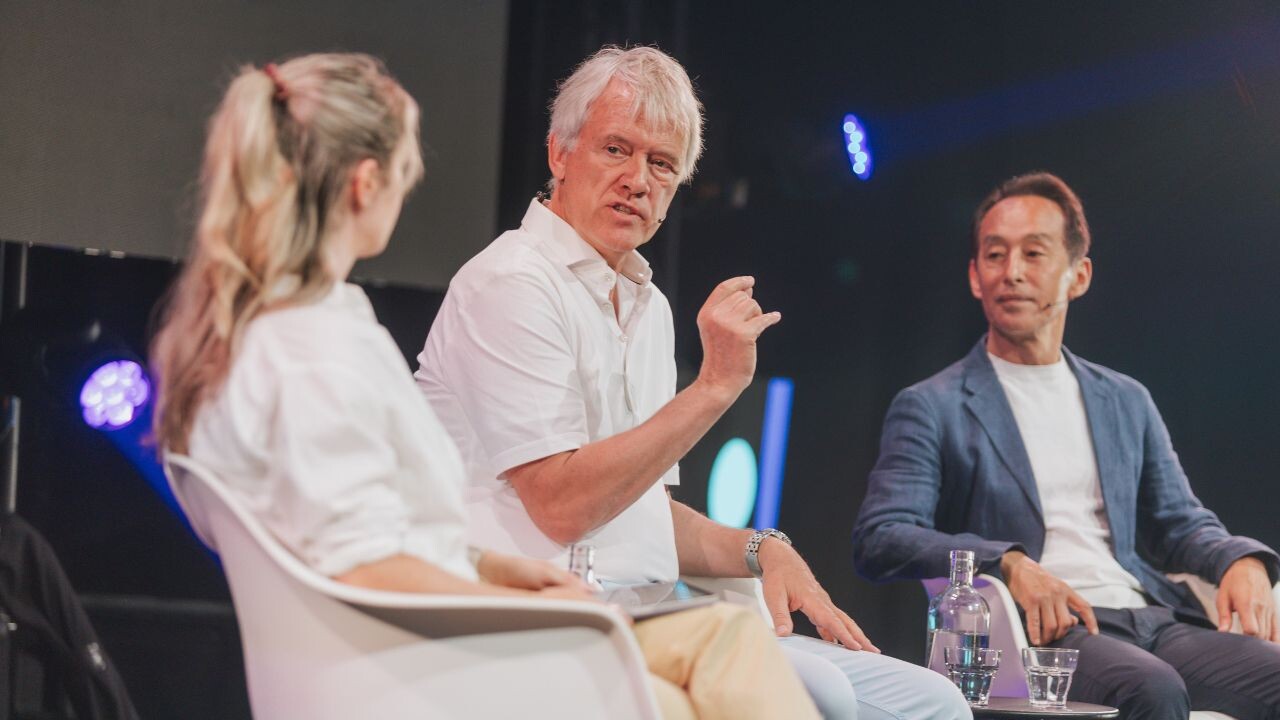ASML's former CEO believes Donald Trump's reelection presents a golden opportunity for Europe.
Peter Wennink, who led ASML to become the continent's most valuable tech company, sees a chance for other businesses to thrive by embracing collaboration as the US shifts toward isolationism.
“Mr Trump could be the best thing that ever happened to Europe… I think people have woken up,” Wennink said at TNW Conference on Friday.
He now wants the continent to seize the moment by replicating a pillar of ASML's success: open ecosystems.
During over a decade as CEO, Wennink oversaw the company's rise to a €250bn market cap after its stock soared by 1,000%. The firm's dominance is built on its EUV lithography machines, which are essential to producing the world's most advanced chips. No other business in the world provides them.
Yet Wennink stresses that the tech requires trusted partners to flourish. As the US turns inward, he wants European governments and companies to double down on collaboration. Spooked by Trump's trade wars and retreat from transatlantic ties, many are already moving in that direction.
“[They] are certainly thinking about single-sided dependencies as unacceptable because of the unpredictability of Mr T,” Wennink said.
The change in mindset, he adds, is overdue. Wennink recently described the Netherlands as “fat, dumb, and happy.” But the complacency is now fading.
He points to shifting strategies among local investors. Amid growing political concerns about the US, many European funds are repatriating their capital.
APG, which manages the Netherlands' largest pension scheme, recently said the bulk of a forecasted €100bn in new capital would be spent in Europe. Just last month, the €57bn pension fund flagged policy risks under Trump as a key reason to reassess its US investments.
Wennink has heard these concerns firsthand. “The big question they now ask me is, how much of the money should come back?” he said.
“I'm 50 years in business and have never heard pension funds — but also government officials — saying this,” he added.
The challenge now, Wennink warns, is reorganising these investments — a process that will take years. In the meantime, US tech giants will continue to advance. Can Europe catch up?
Young Sohn, a board member at Arm and founding managing partner at Walden Catalyst Ventures, believes it can. He points to ASML and Arm emerging from Europe to become two of the world's biggest hardware companies.
How did they do it? “It was about ecosystems,” Sohn said.
UK-based Arm is a prime example. The firm's chip designs now power over 99% of smartphones, billions of devices, and countless AI applications.
But when Arm launched in the early 1990s, it was a small upstart in a field dominated by the likes of Intel, Motorola, and Texas Instruments. Sohn argued the company succeeded by focusing on collaboration.
“They decided to be a peacemaker,” he said. “They decided to give their IP to pretty much everybody around the world so that everybody doesn't have to recreate these processing architectures that are needed for lower power… This is a company that built an ecosystem of startup companies.”
Wennink attributes ASML's success to partnerships as well. The company's ecosystem of suppliers, universities, research institutes, innovation programmes, tech firms, and customers shaped its direction from the start. ASML actively sought input from all of them.
“When something's very complex, you don't know what you don't know — but somebody else might,” he said.
That model, he argues, is ideal for Europe — especially as Trump reshapes the US tech landscape.
“I strongly believe that there is a European mentality… that there's an intrinsic desire to collaborate,” Wennink said. “And the main condition for collaboration is that you have a fair share of the risks and rewards that you're driving through together. And that is a European trait.”
